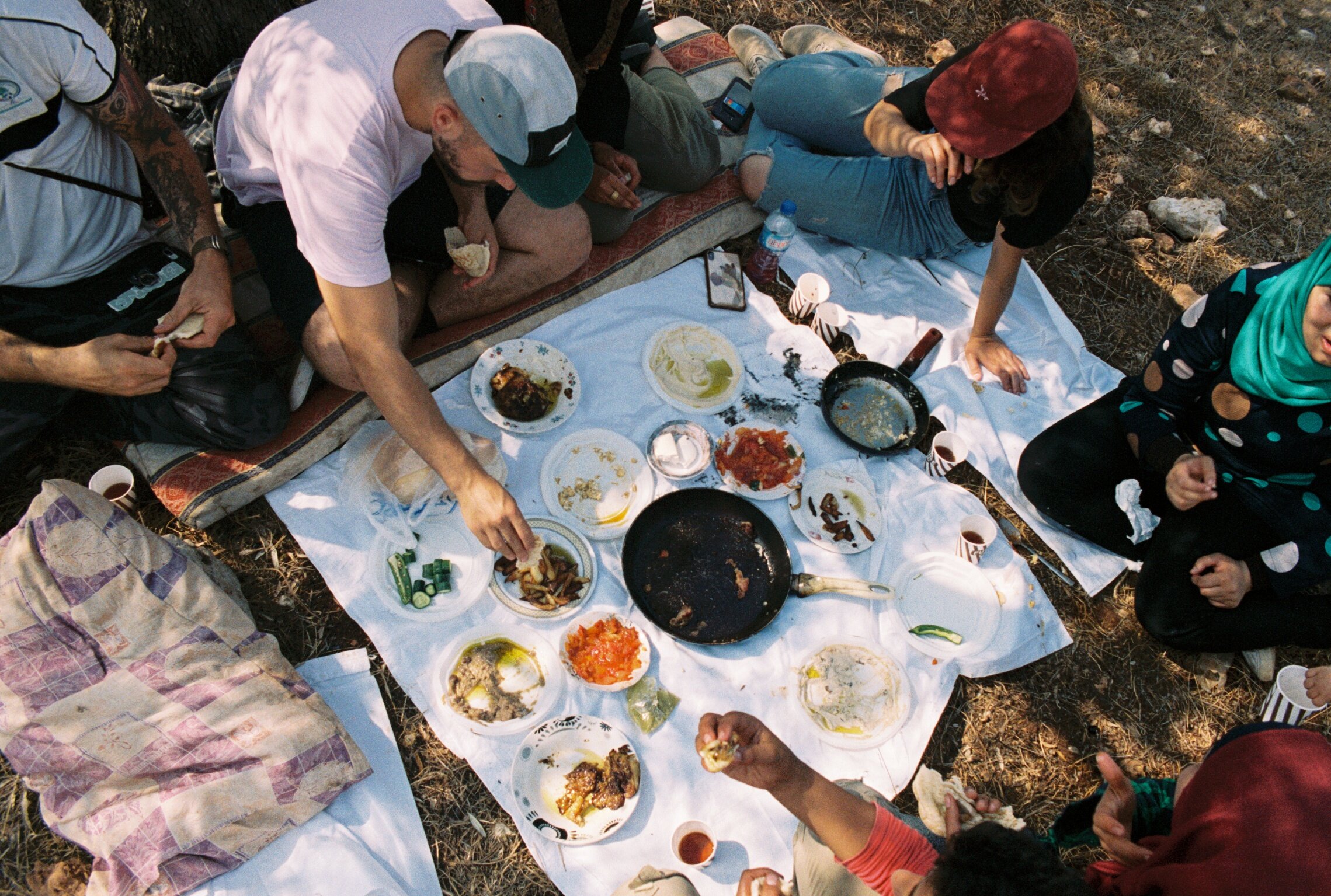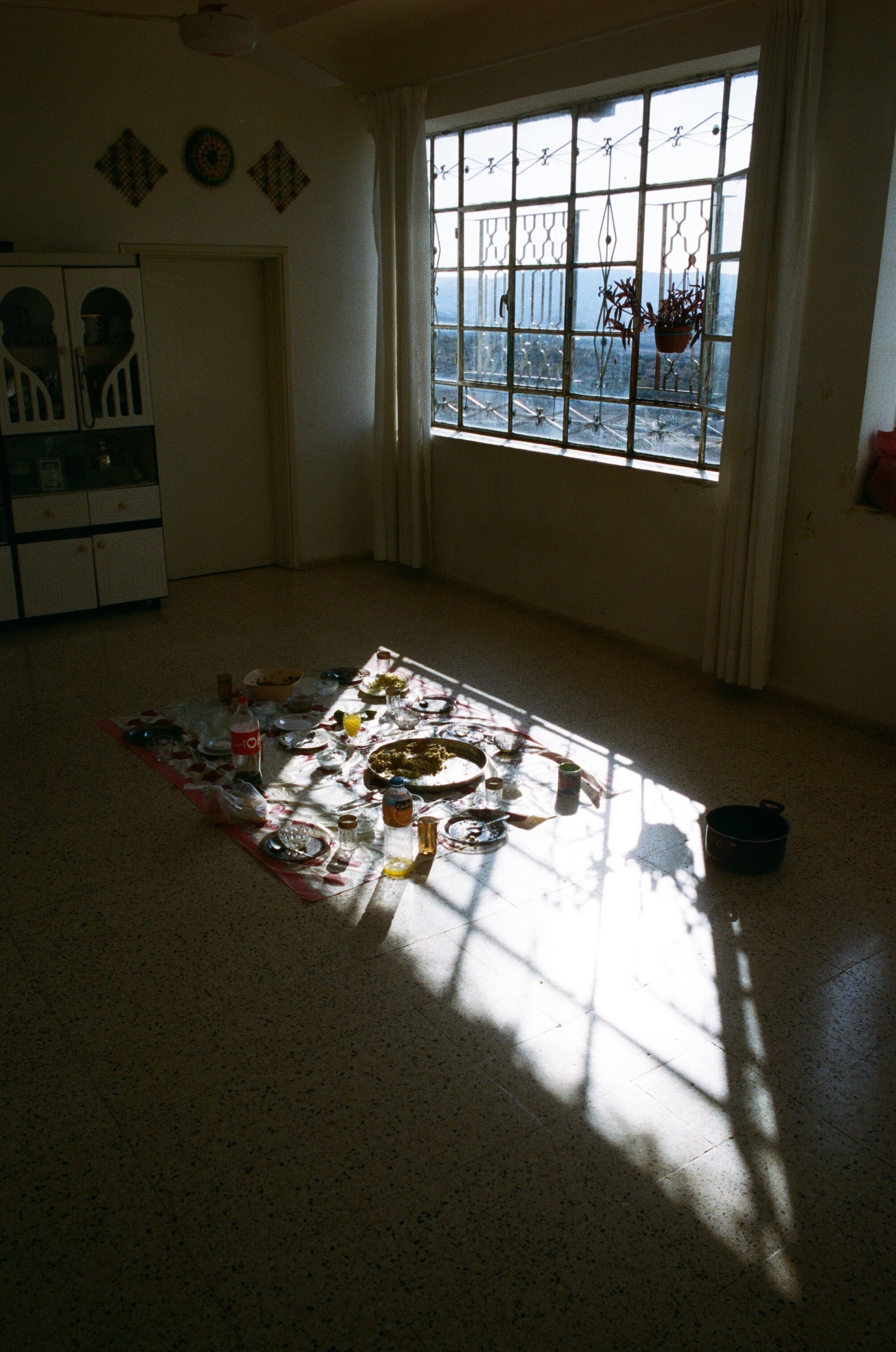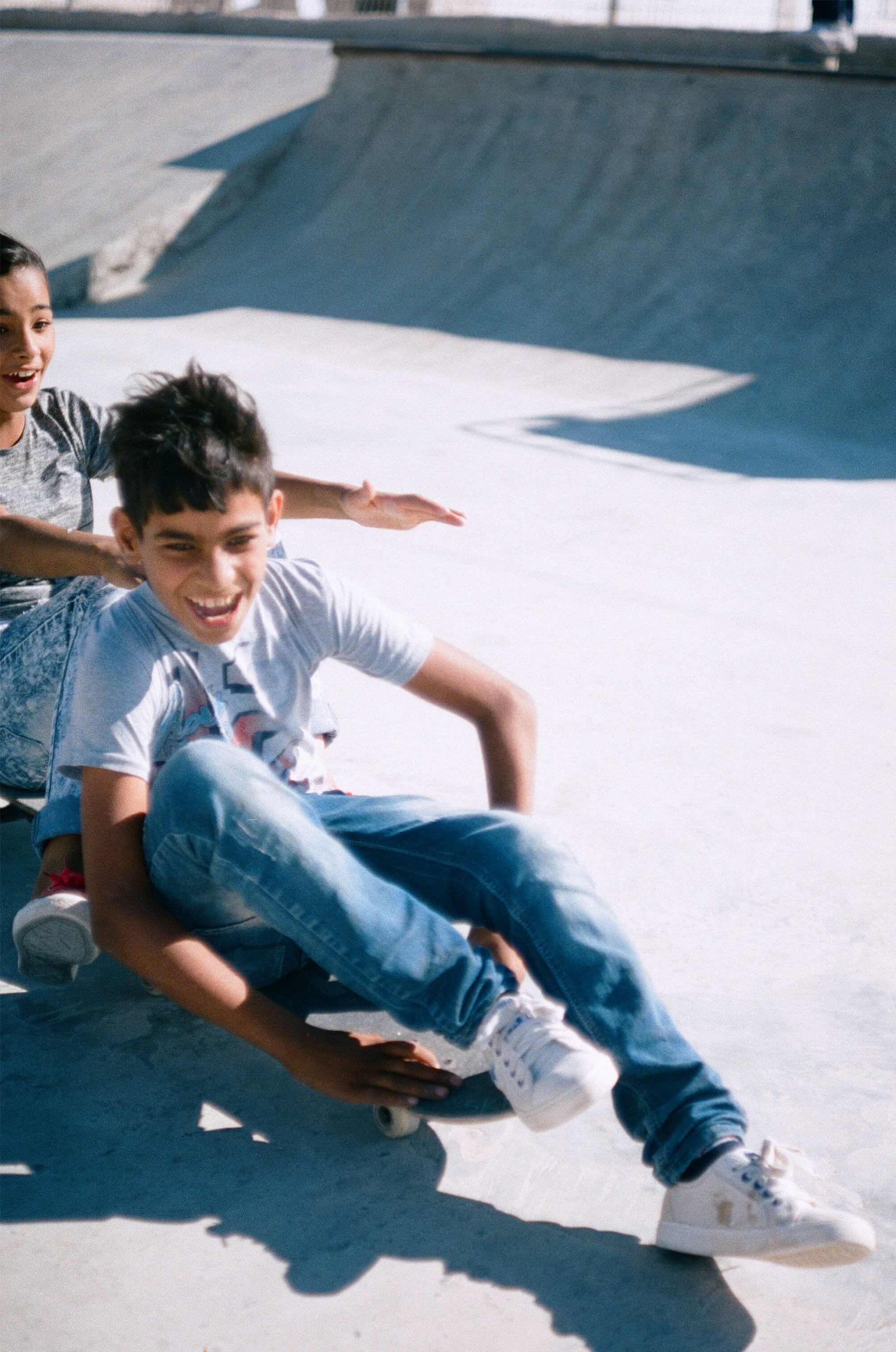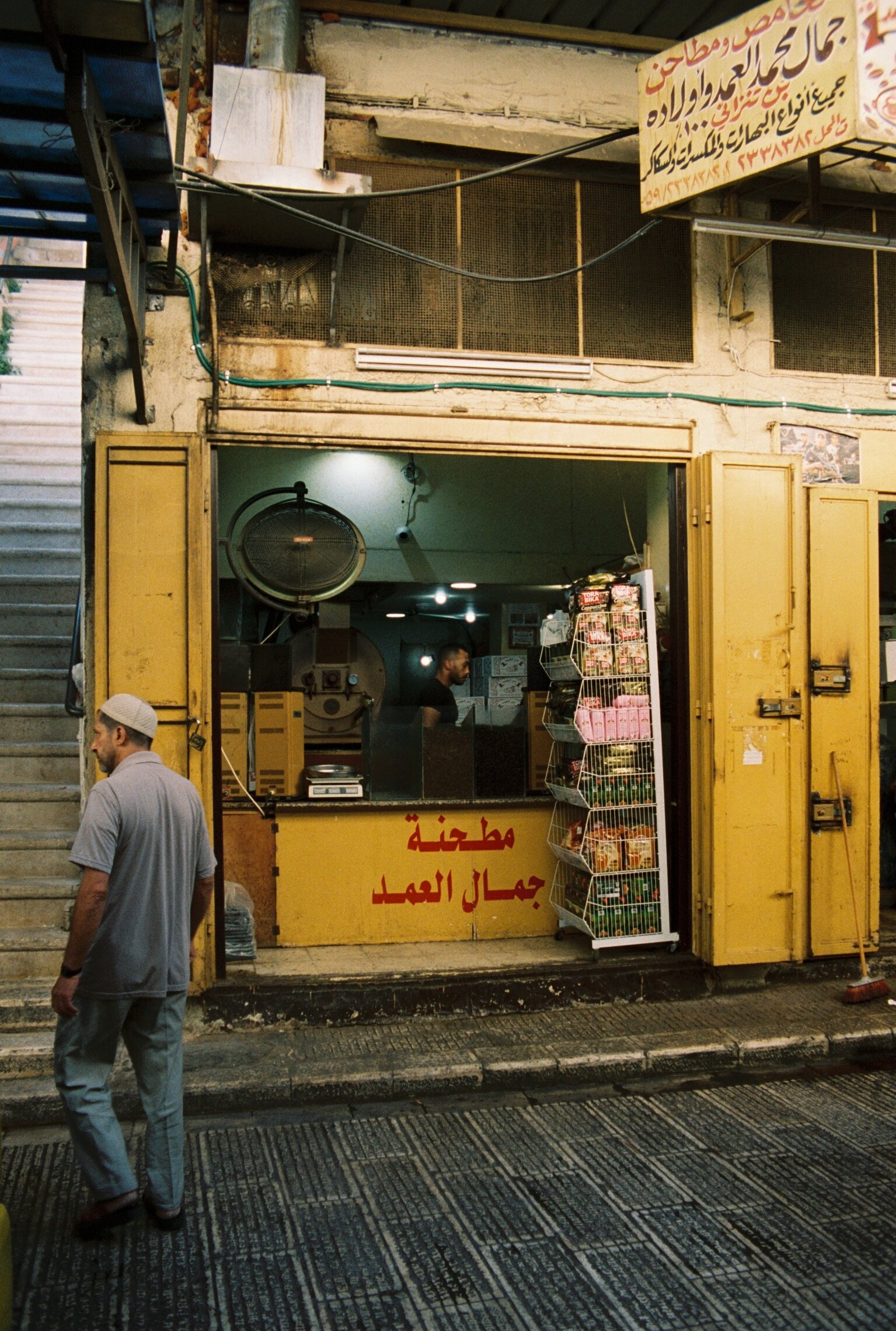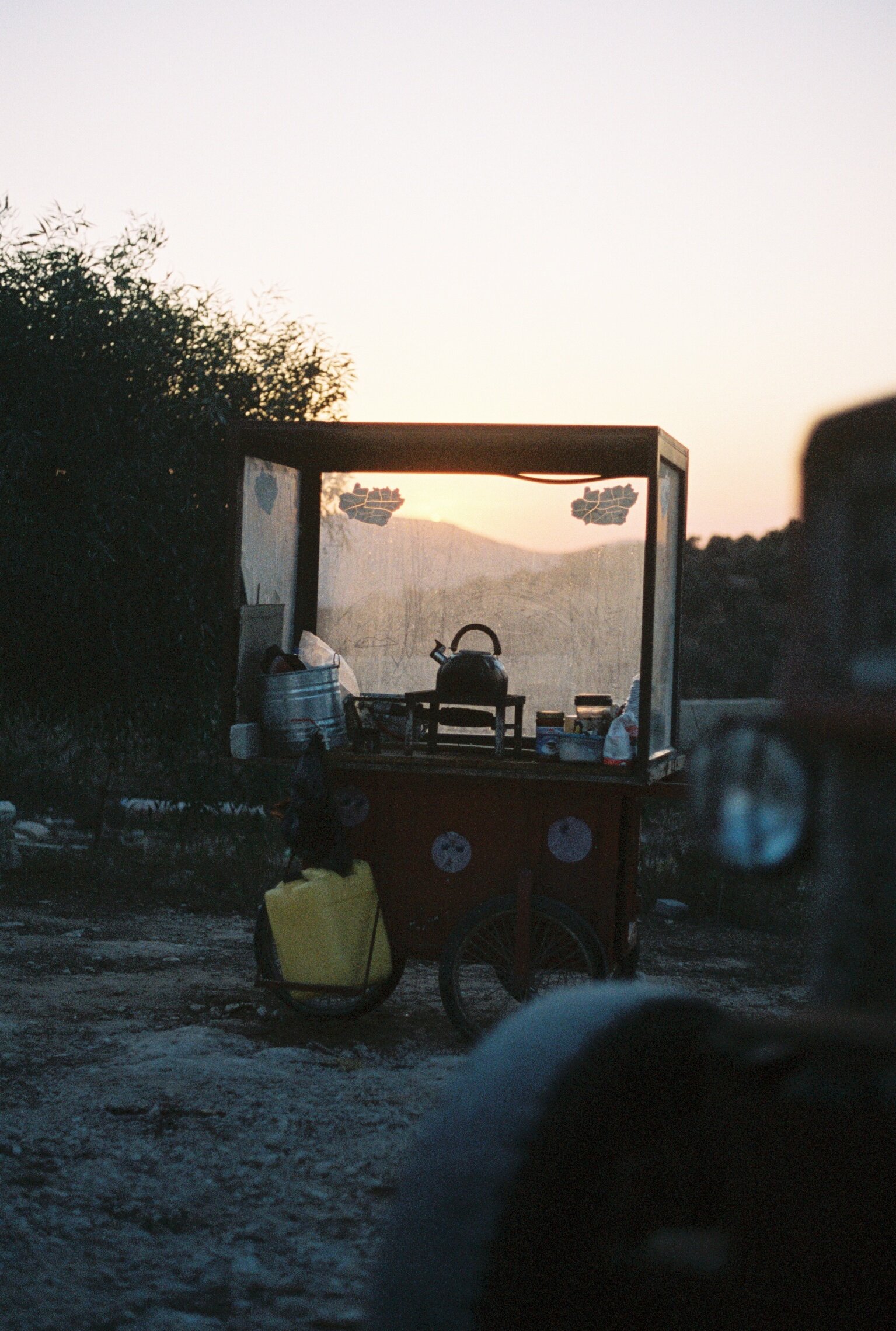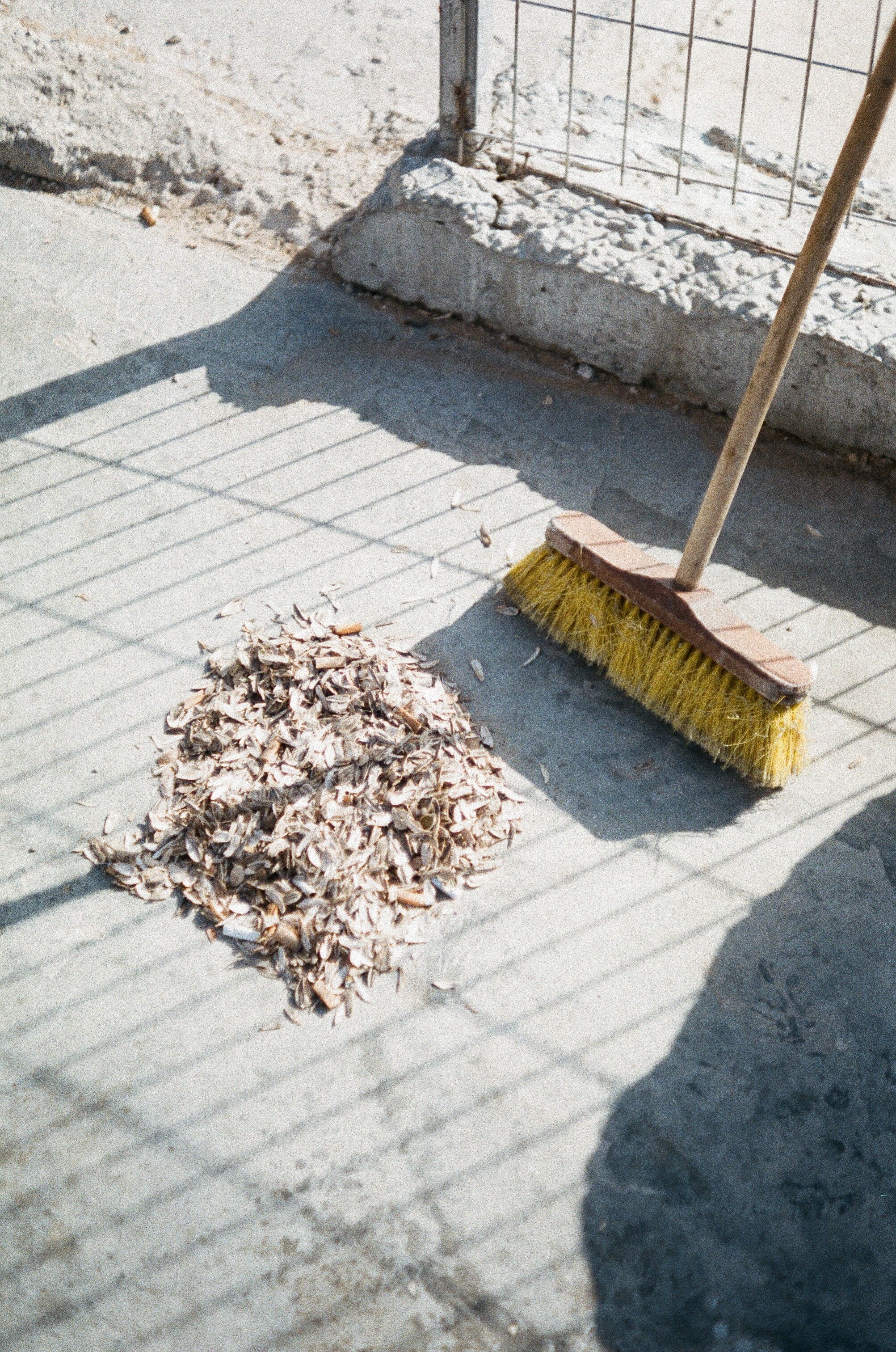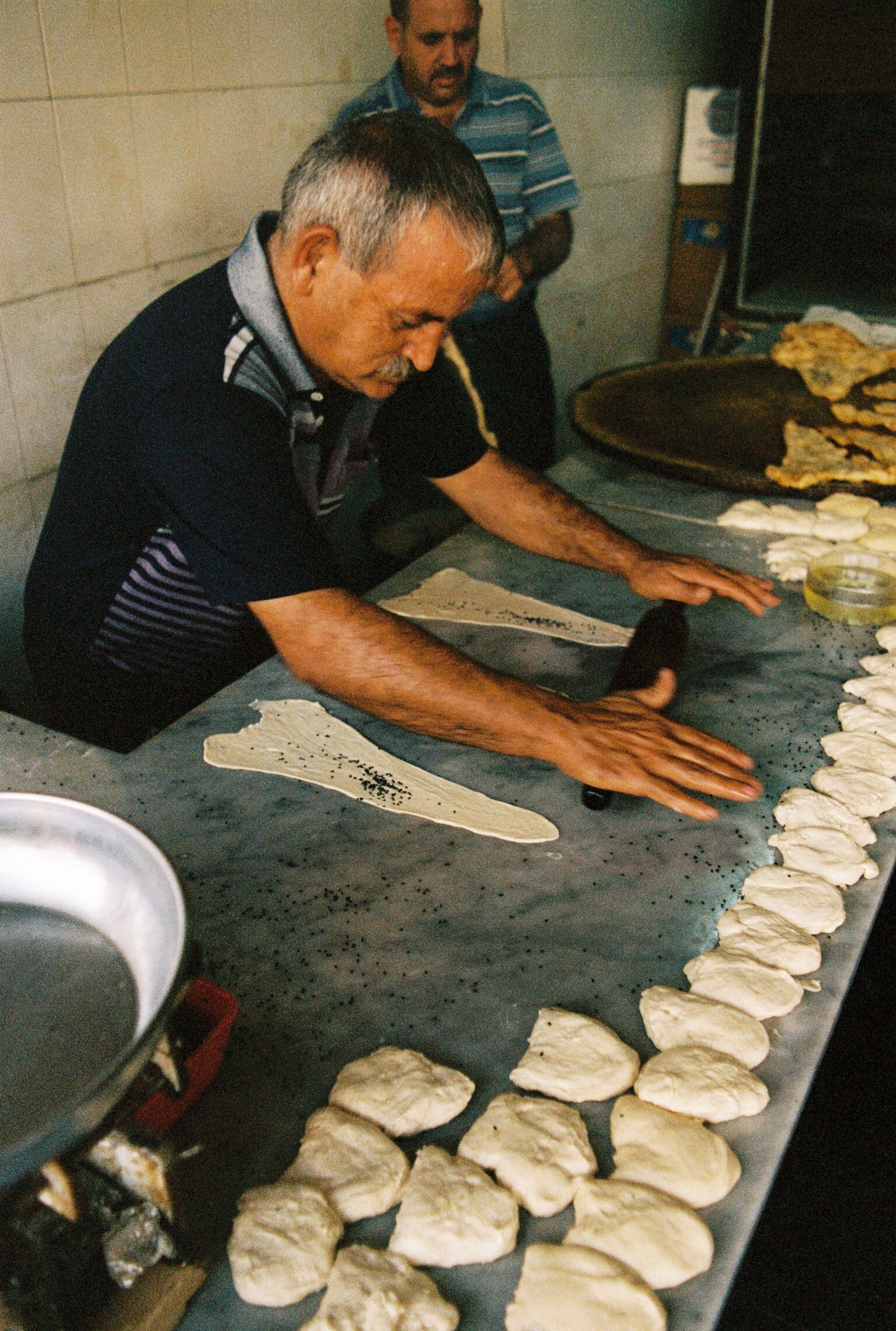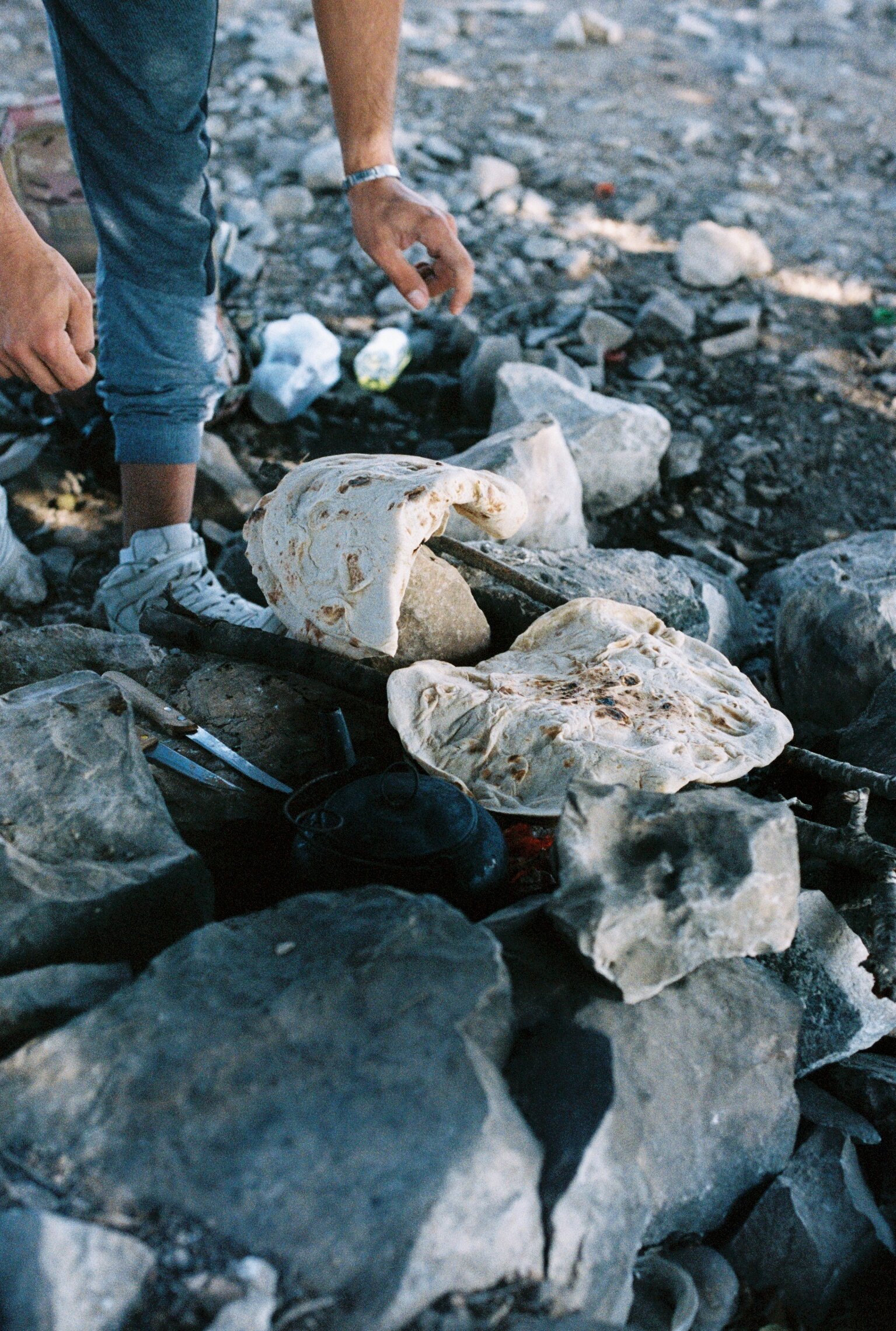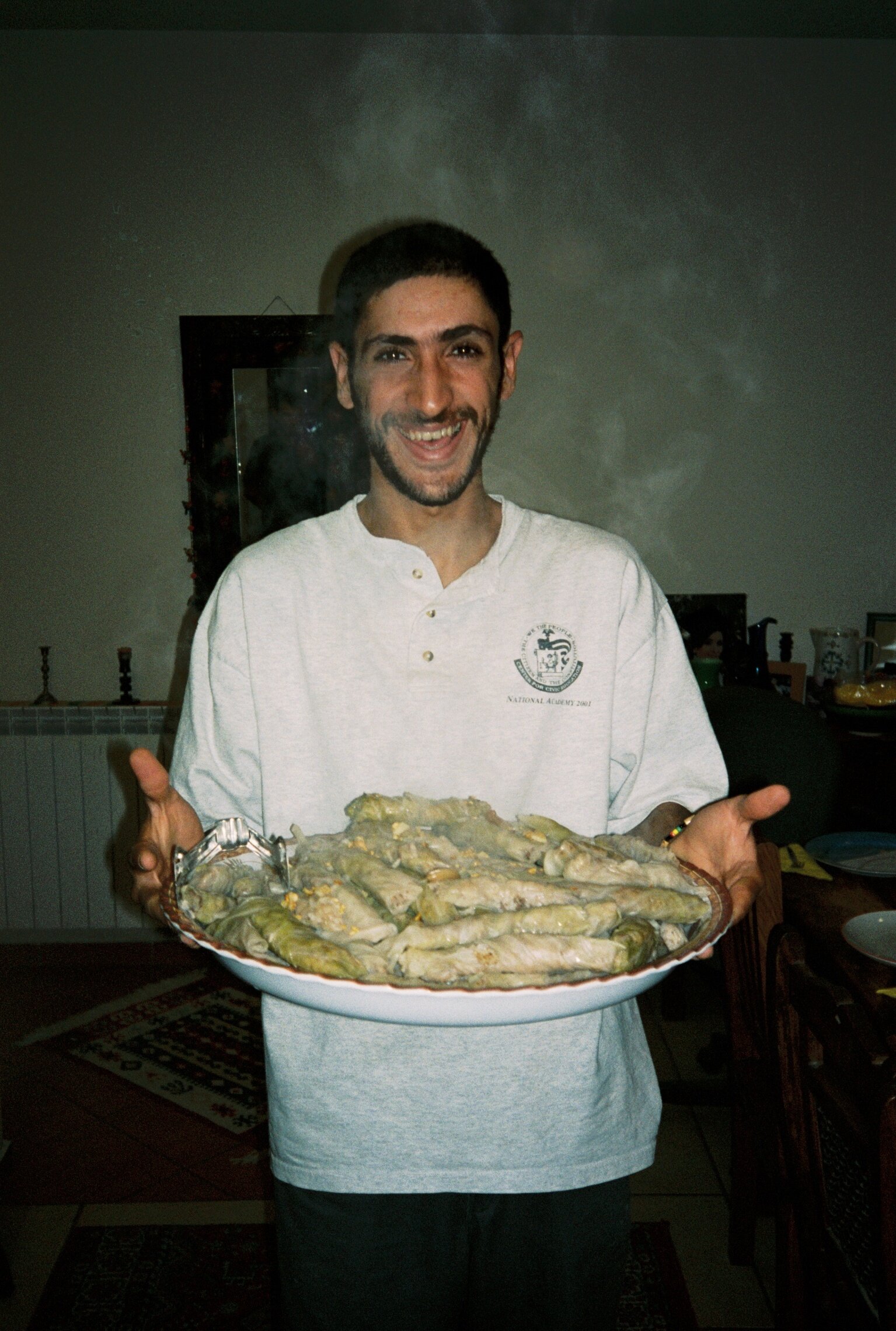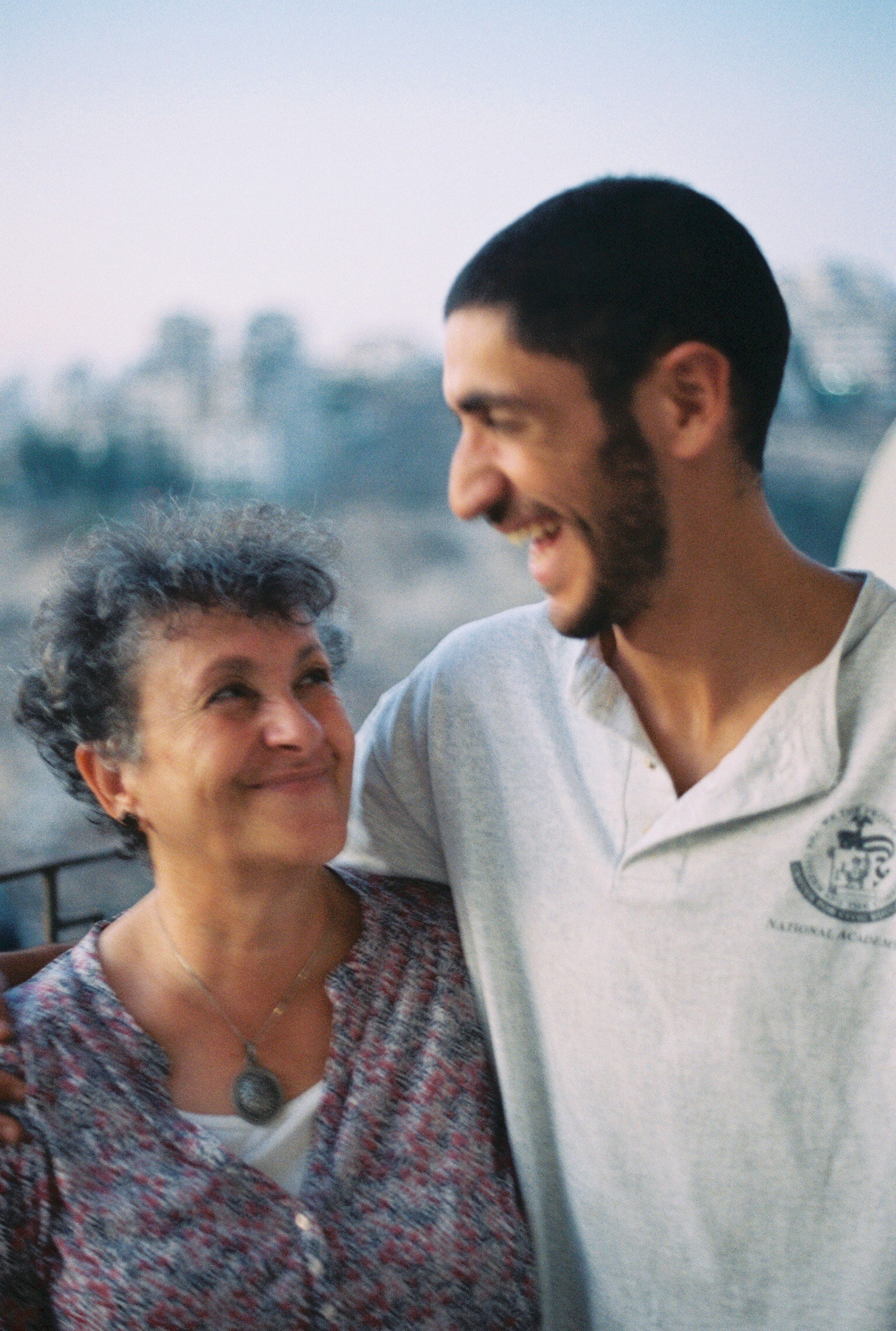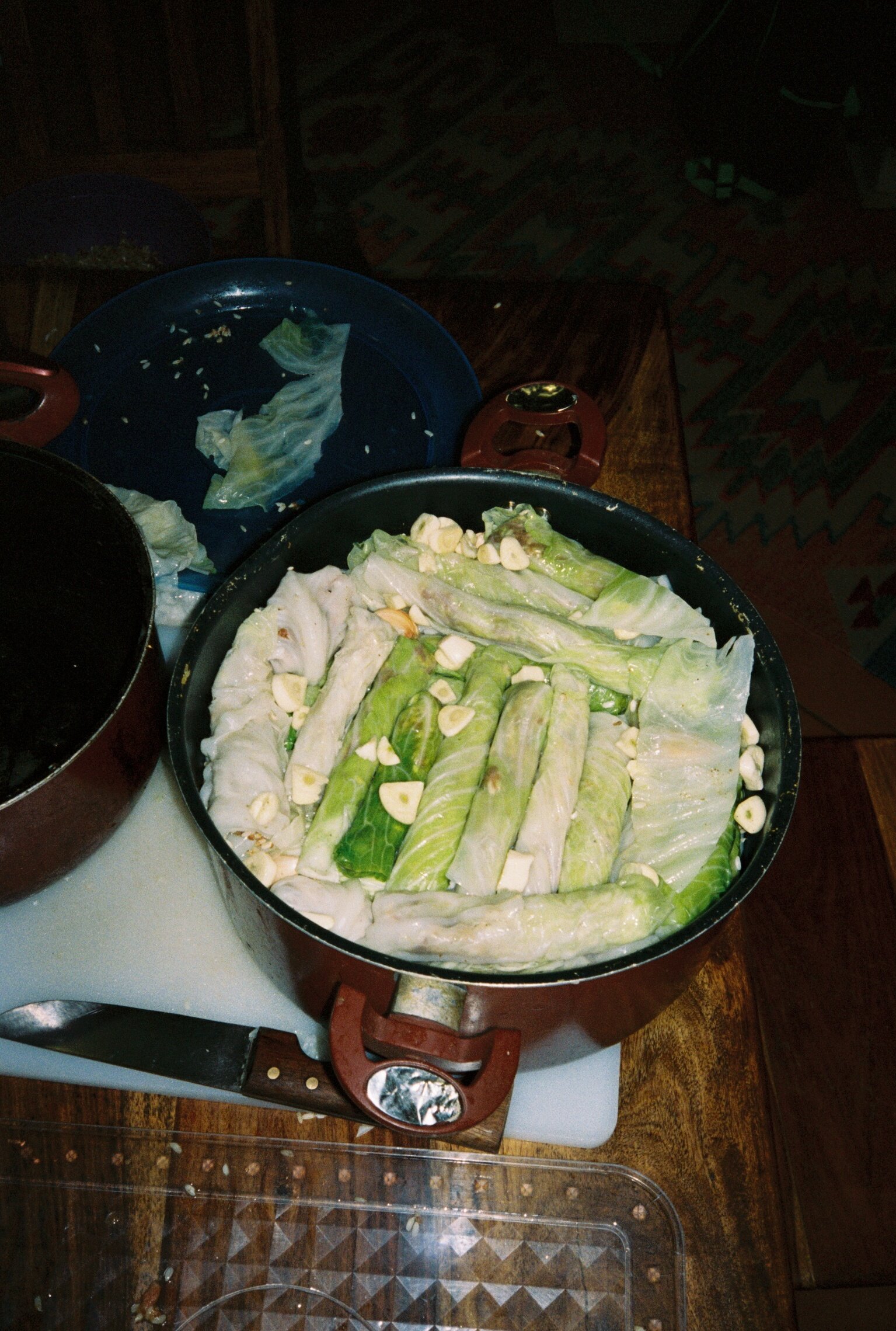SkatePal
Photography by Tom Bird
Story courtesy of SkatePal
Upon arriving in Palestine, it quickly becomes clear that food is sacred. Large shared plates bring people together to revel in stories and catch up on family news, whilst enjoying the delights of local produce. Over the past few years, this communal way of living has also come to encapsulate the vibe of the burgeoning local skateboarding scene.
Head down to the skatepark in the village of Asira Al-Shamaliya on a Friday afternoon and you will find the place packed not only with skateboarders of all ages, but families chilling among the hilltops drinking ‘shay’ (tea) or ‘qahwa’ (coffee), nibbling on sunflower seeds and smoking ‘nargeela’ (shisha).
Being a physically demanding sport, skateboarders are known for big appetites to keep their energy levels up, and if you’ve got a big appetite, then Palestine is the place to be. The culture of food and coffee punctuate every meeting, family occasion and street mission: from a pre-session falafel wrap at Ramallah Plaza, to a mid-session plate of kanafeh when craving a sugar-hit, and finally to a post-session hearty home cooked meal with the entire family. ‘Sahten’ – which translates literally to ‘two healths’ – is commonly used when tucking into a meal. The traditional response ‘A’la qalbak’ (‘on your heart’) shows just how intertwined food and community are in Palestine.
SkatePal is a non-profit organisation that has been supporting communities throughout Palestine since 2013, promoting the social, health and wellbeing benefits of skateboarding to enhance the lives of local young people. To spotlight the community which continues to grow around skateboarding in Palestine, they released SAHTEN, painting a picture of the local skate scene in the form of a cookbook. The recipes have been collected from various figures close to Palestine’s skateboard community, supplemented with a couple of recipes from past volunteers and even by Palestine’s own international master chef, Sami Tamimi. Some dishes are easy to make, serving as a quick bite before you hit the streets, some are heavier meals that take longer to prepare and are better enjoyed after the session, and some are perfect anytime of day. There’s also something for those with a sweet tooth and for the coffee addicts too.
The recipes have been illustrated by Palestinian-Canadian animator Noor Abou-Seido, and coloured in by young skaters in Palestine and the Palestinian diaspora in Canada, peppered with photography collected over the years. SAHTEN also features interviews with local and professional skaters and various other features - there is even a yoga sequence designed to help ease any skate-related aches and pains. You don’t have to ride a skateboard in order to appreciate these recipes, but for the full SkatePal experience, they suggest you give it a try.
Sahten!
All proceeds from the book help support SkatePal's continued work in Palestine. The book is available internationally through their online shop as well as selected independent bookstores.
Malfouf Recipe
by ARAM & SORIDA SABBAH (RAMALLAH)
آرام و سريدا صباّح
Since graduating from university in Tunisia, Aram Sabbah آرام صبّاح moved back to Ramallah in 2019 and took on the role of SkatePal’s Local Manager, having been part of the family since day one. Originally from Jenin, a city in the north of the West Bank, Aram was first introduced to skateboarding in 2012 and has since become a pillar of Palestine’s skate community. In 2019, Aram was invited to take part in the ‘Globally Stoked’ panel discussion at Pushing Boarders skateboarding conference in Malmö, Sweden, to discuss the impact of international skate-NGOs on local communities around the world.
When asked which food he most craves when away from home, Aram didn’t hesitate for a second.
“Malfouf! We gotta make it, but I gotta check when my mother is free ‘cause I don’t know what I’m doing…”
No matter where you go in the world, some things remain the same. Food is comfort and comfort is home. And so we found ourselves in the family home of Aram (SkatePal’s local manager) and his mother Sorida, born and raised in Columbia, but to Palestinian parents who ensured she understood her roots – which of course means learning how to prepare malfouf.
Here, in their cosy Ramallah home, a mix of SkatePal volunteers, Aram’s school friends, and a couple of other visiting skaters gathered around a large plate piled high with tightly wrapped cabbage leaves filled with spiced meat and rice. Malfouf is similar to stuffed grape leaves, commonly known as ‘dolmas’ or ‘warak enab’ in the Arab world, yet Aram assures us there is no comparison. Nothing draws him more towards his home country than the prospect of his mother’s home-cooked malfouf. So here it is...
Instructions
1. Cover the rice with boiling water and allow it to stand for 15–20 mins. It doesn’t need to cook fully – as we’ll be cooking it later in the process.
2. Fill a large saucepan with water and bring to a simmer. One-by-one (depending on the size of your spot) place the cabbages in the water and cook for 5 minutes, turning occasionally until the outer leaves are softened and translucent (but not like a wet tissue).
3. Using tongs lift the cabbage out of the water, let the majority of the water drip back into the pot (don’t turn the hob off), before placing onto a chopping board until cool enough to handle.
4. Carefully remove the cooked leaves and put to one side. Place the cabbage back into the water to cook the next layer of leaves, turning occasionally. Repeat this process until just the stalk is left. This takes a while but it’s totally worth it!
5. After the rice has stood for 15-20 minutes, drain using a sieve, then rinse with cold water for a minute just to clean it. Combine it with the raw minced meat and spices. Season with salt and pepper and mix together using your hands.
6. Now to pull everything together. One by one, arrange a small line of the rice mixture inside a leaf and roll, sealing the edges, burrito style. For those of you who smoke roll-ups, this is your time to shine.
**Sorida recommends keeping the veins of the leaf horizontal when rolling – it’ll make your life easier – and don’t forget the rice will expand again when it cooks, so don’t overfill them!**
7. When all the cabbage leaves are rolled, place them back into the same pot that you used to separate the leaves. Stack them layer by layer, adding 3–4 peeled cloves of garlic to each layer. Use any over-cooked leaves that couldn’t be used for rolling to cover the cabbage ‘cigars’. Refill the pot with the water you used to cook the cabbage, return the pot to the boil, and place a lid on the top. Cook for around 15-20 mins, topping up with water if necessary.
8. Once the cigars are feeling firm, the meat should be cooked through and ready to eat. Drain any remaining water and tip the steaming cigars onto a plate. Separate the natural yogurt between a few dishes, and serve with freshly toasted pitta.
Ingredients
Serves 4
Prep time 1h
750g minced beef
500g of white rice
4 white cabbages
12 garlic cloves (peeled)
2 tbsp cumin (ground)
1 tbsp cinnamon (ground)
1 tbsp cardamom (ground)
1 tbsp nutmeg (ground)
1 litre natural yoghurt
salt & pepper

